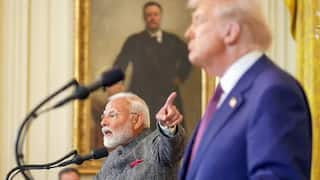Karnataka Results: Local Factors To Focussed Promises — 5 Reasons Why Congress Could Wrest BJP's South Citadel

In line with a majority of the opinion polls and some of the exit polls, the Congress has emerged as the clear winner in the Karnataka elections, beating the trend of hung verdicts in three out of the last four elections. The Congress had won or was leading on 136 seats at the time of writing, while the BJP had 64 in its kitty. Having lost a lot of ground, JD(S) has had to be content with just 22 seats. The BJP also seems to have lost a lot of ground compared to the 2018 general elections. This reiterates the fact that state and national elections are contested on different issues.
In terms of vote share, the Congress has gained 4%, with the BJP seeing a marginal dip of 0.5% and the JD(S) losing heavily at 5%.
So, how did Congress script such a big victory, or how did BJP lose so heavily? There are at least 5 reasons. Let’s analyse.
1. Unpopular CM And Double Anti-Incumbency
BJP’s tactics of changing the CM midway showed results in Gujarat, Uttarakhand and Tripura. But the trick didn't seem to have worked in Karnataka. Bommai is fairly unpopular. In fact, an opinion poll suggested 27% people wanted Siddaramaiah to be the next CM, as against 15% each for Bommai and HD Kumaraswamy. I don’t recall any incumbent CM having such lesser popularity ratings in the last nine years. With elections increasingly becoming presidential style, this hurt the BJP’s prospects. Further, many ministers have lost indicating double anti-incumbency.
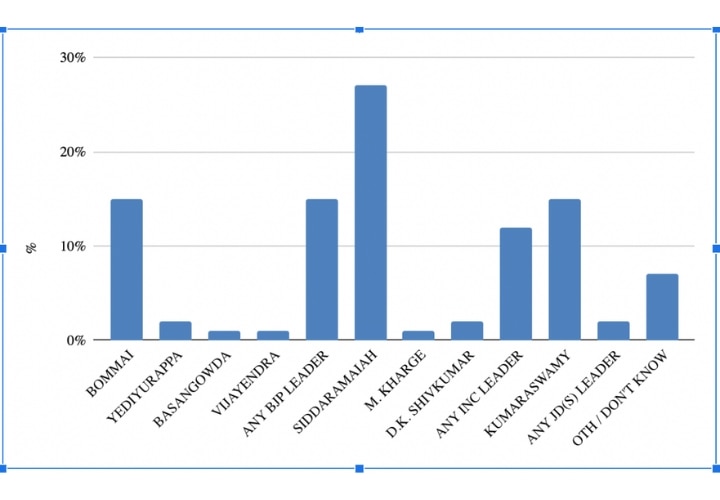
2. BJP’s Lack Of Focus On Local Issues
BJP tried to contest this election on national issues, aware of the dissatisfaction with Bommai government. However, since the BJP was in power, people gave first preference to the track record of the government. Only 7% voted for PM Modi, and he could not negate Bommai’s non-performance. Local issues and candidates dominated the narrative in state.
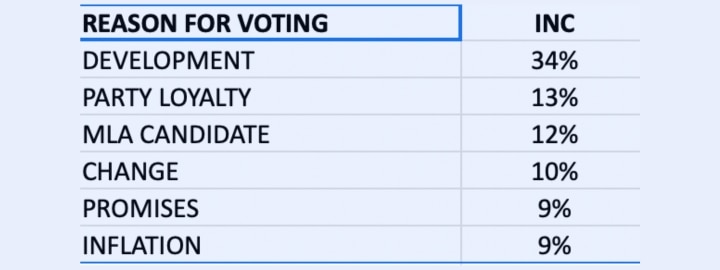
3. BJP’s Failure To Broaden Social Coalition, Shed Lingayat Party Tag
Despite its sincere efforts, BJP was not able to move beyond LIBRA (Lingayat plus Brahmin voters) in Karnataka. Gains in Vokkaliga community are minor (2%), while it seems its reservation rejig for SCs has backfired. Siddaramaiah has been able to win over OBC support of the BJP due to his popularity.
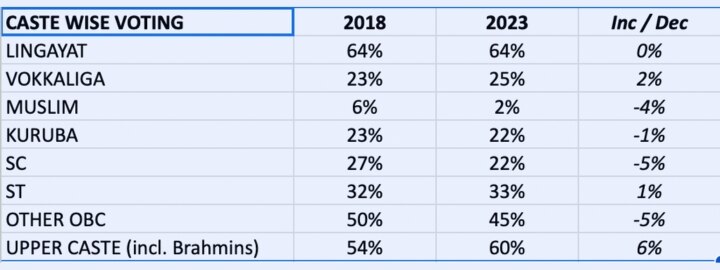
4. Focussed Campaign And Promises Of Congress
Congress ran a tight campaign throughout, only wavering in the end a bit with "poisonous snake" jibe at PM, the sovereignty remark by Sonia Gandhi and Bajrang Dal ban promise in its manifesto. Its messaging was clear, with one guarantee for each big segment of voters like the poor (free electricity and 10 kg rice), women (Rs 2,000 per month and free bus pass), and youth (unemployment allowance of Rs 1500/ Rs 3000). Its promises were among the top 5 reasons for voters' preference for the Congress.
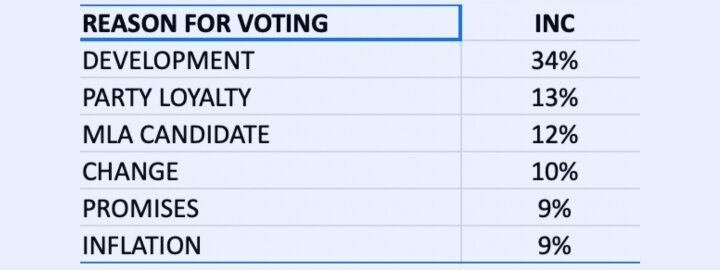
5. Hindutva And Polarisation Failed
The BJP made the Congress's Bajrang Dal ban promise a big election issue. However, the results show this did not resonate with the people of the state, except in the Coastal region. In states where literacy levels are high, polarisation doesn’t work too well. On the other hand, this helped the Congress consolidate minority vote in favour of the party (88%), snatching it from the JD(S) and tossing the third player in the election out of the contest.
In the end, historical trend prevailed, and the incumbent CM failed to return to power.
The author is a political commentator and SEBI-registered investment advisor.
[Disclaimer: The opinions, beliefs, and views expressed by the various authors and forum participants on this website are personal and do not reflect the opinions, beliefs, and views of ABP News Network Pvt Ltd.]














